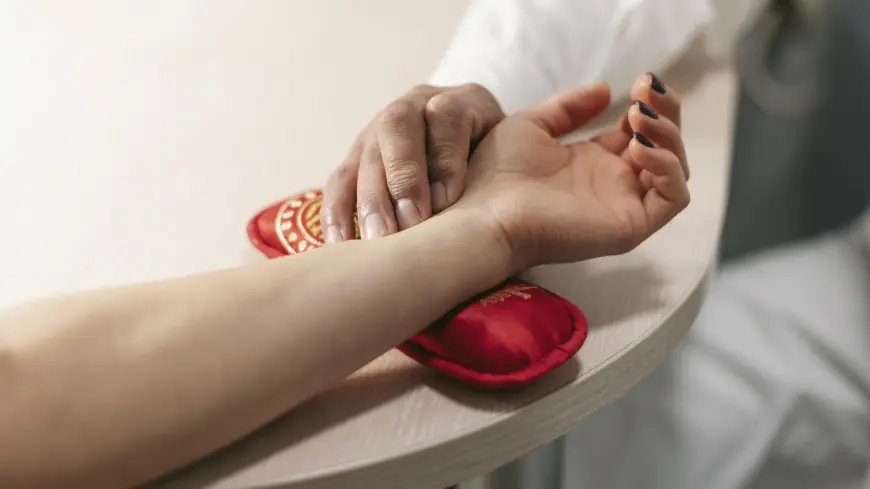How Acupuncture Enhances Athletic Performance Naturally
Discover how acupuncture for sports performance boosts recovery, reduces injuries, and enhances stamina naturally. Explore benefits, science, and success stories.

Athletes are always on the hunt for that extra edge—something that helps them recover faster, perform better, and avoid injuries. From cryotherapy to compression boots, the list of recovery tools continues to grow. But one ancient practice has quietly stood the test of time and is now making a major comeback in the modern sports world: acupuncture.
If you’re looking to improve your endurance, accelerate healing, and boost your overall output, acupuncture for sports performance may be the natural solution you didn’t know you needed. Backed by both Eastern tradition and modern research, acupuncture is gaining traction among elite athletes, weekend warriors, and sports rehab specialists alike.
Let’s dive into how acupuncture works, why it’s beneficial for athletic performance, and how you can safely integrate it into your training or recovery plan.
What Is Acupuncture, Really?
At its core, acupuncture is a traditional Chinese medicine (TCM) technique that involves inserting ultra-fine needles into specific points on the body. These points lie along energy channels called meridians, and stimulating them is believed to balance the body’s flow of Qi (pronounced "chee")—your vital energy.
While this may sound mystical, modern science offers a complementary explanation. Research shows that acupuncture stimulates the nervous system, promotes blood flow, triggers the release of endorphins, and can influence hormonal balance, all of which are key for physical performance and recovery.
How Acupuncture Enhances Sports Performance
1. Faster Recovery from Training and Injury
Training hard is great—until your body starts breaking down. Micro-tears, joint inflammation, and muscular fatigue can all hinder your progress. This is where acupuncture shines.
A 2018 study in The Journal of Alternative and Complementary Medicine found that acupuncture significantly reduced DOMS (Delayed Onset Muscle Soreness) and improved muscle function 24 to 72 hours after intense workouts. That means faster bounce-back time for athletes and fewer missed training days.
Acupuncture for sports performance helps promote microcirculation—bringing oxygen and nutrients to tired or injured muscles while removing metabolic waste. It's like turning on your body’s internal clean-up crew.
2. Pain Management Without Pills
Whether it’s a nagging knee or a sore shoulder, pain is part of an athlete’s reality. But over-reliance on NSAIDs or opioids can lead to side effects and long-term issues. Acupuncture offers a non-invasive, drug-free alternative for managing pain.
According to the National Institutes of Health (NIH), acupuncture has shown significant effectiveness in treating chronic pain conditions like lower back pain, neck pain, knee osteoarthritis, and headaches—many of which are common in athletes.
By targeting trigger points and releasing natural painkillers (endorphins), acupuncture allows athletes to stay in the game longer, with fewer pharmaceutical dependencies.
3. Enhanced Mental Focus and Calm
Success in sports isn’t just physical—it’s also deeply mental. Focus, clarity, and emotional regulation are critical, especially in high-pressure moments.
Acupuncture helps regulate the autonomic nervous system, reducing cortisol (stress hormone) and boosting serotonin, promoting a calm, focused state. Many athletes report feeling more centered and alert after a session.
Top athletes like NBA MVP Kevin Durant and NFL stars have publicly shared how acupuncture helps with their mental recovery and emotional balance, giving them an edge in clutch moments.
4. Improved Flexibility and Range of Motion
Tight muscles and stiff joints can ruin an athlete’s stride, swing, or sprint. Acupuncture works directly on the musculoskeletal system, helping relax overused muscles, release fascia, and reduce inflammation in joints.
Whether you’re a sprinter, swimmer, or cyclist, regular acupuncture sessions can improve your biomechanics, boost joint mobility, and help you move more freely and efficiently.
5. Injury Prevention
Let’s face it—no athlete wants to sit on the sidelines. Fortunately, acupuncture for sports performance isn’t just about healing injuries—it’s about preventing them in the first place.
By detecting and treating imbalances before they become problems, acupuncture helps maintain structural alignment, reduce overcompensation patterns, and prevent chronic strain. Many sports acupuncturists also combine motor point stimulation and dry needling to improve neuromuscular function—acting as a tune-up for your body.
Real-Life Success Stories
-
Kobe Bryant was a vocal advocate of acupuncture, often receiving treatments during his career to manage injuries and stay game-ready.
-
Michael Phelps famously showed off his acupuncture-related cupping marks during the Olympics.
-
US Olympic training centers now offer acupuncture as part of athlete support programs.
Elite sports teams, from the NFL to the UFC, have acupuncturists on staff—not just for rehab, but as part of their performance optimization protocols.
Scientific Evidence Supporting Acupuncture for Sports
Several peer-reviewed studies support the efficacy of acupuncture for sports performance:
-
A 2019 British Journal of Sports Medicine review noted significant improvement in muscle activation and flexibility following acupuncture in athletes.
-
A randomized trial published in Clinical Rehabilitation found that acupuncture accelerated knee recovery post-ACL surgery compared to control groups.
-
Studies in PLOS ONE and Pain Medicine also indicate improved endurance and aerobic capacity among athletes undergoing acupuncture treatment.
The mounting evidence has pushed acupuncture into the mainstream sports medicine conversation—and it’s here to stay.
Common Conditions Treated with Acupuncture in Athletes
-
Tendonitis (Achilles, rotator cuff, tennis elbow)
-
Plantar fasciitis
-
IT band syndrome
-
Shin splints
-
Muscle strains
-
Lower back pain
-
Shoulder impingement
-
Stress fractures (as part of recovery support)
Whether you’re a runner, lifter, dancer, or weekend tennis player, acupuncture can support your body through the highs and lows of training cycles.
How to Get Started with Acupuncture for Sports Performance
If you're considering adding acupuncture to your athletic routine, here’s how to start smart:
-
Find a Licensed Sports Acupuncturist: Not all acupuncturists are trained in sports medicine. Look for certifications in orthopedic acupuncture or dry needling.
-
Start with a Baseline Assessment: A good practitioner will assess your posture, movement patterns, and training history before starting.
-
Consistency Is Key: While you may feel results after one session, long-term benefits build over time. Weekly or biweekly sessions work well during training blocks.
-
Combine with Physical Therapy: Acupuncture pairs well with chiropractic care, massage, and rehab exercises to create a well-rounded recovery plan.
-
Track Your Metrics: Monitor performance, sleep quality, HRV (heart rate variability), and injury recurrence before and after sessions.
Final Thoughts
There’s a reason more athletes are turning to ancient wisdom in a modern world. Acupuncture for sports performance is no longer a fringe trend—it’s a powerful, science-backed tool that supports endurance, recovery, mental focus, and injury prevention.
So, whether you're gunning for a marathon PR or just want to stay active without pain, acupuncture offers a natural, holistic path to peak performance.
Don’t wait for an injury to explore its benefits. Start now, and let your body thank you later.
What's Your Reaction?
 Like
0
Like
0
 Dislike
0
Dislike
0
 Love
0
Love
0
 Funny
0
Funny
0
 Angry
0
Angry
0
 Sad
0
Sad
0
 Wow
0
Wow
0

















































